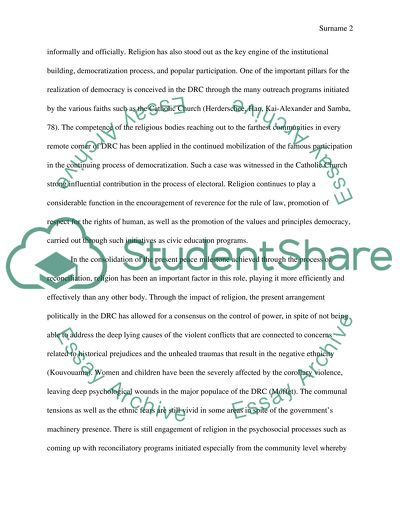Cite this document
(“Development in the Democratic Republic of Congo Essay”, n.d.)
Retrieved from https://studentshare.org/history/1398150-the-role-of-ritual-religion-and-violence-in-the
Retrieved from https://studentshare.org/history/1398150-the-role-of-ritual-religion-and-violence-in-the
(Development in the Democratic Republic of Congo Essay)
https://studentshare.org/history/1398150-the-role-of-ritual-religion-and-violence-in-the.
https://studentshare.org/history/1398150-the-role-of-ritual-religion-and-violence-in-the.
“Development in the Democratic Republic of Congo Essay”, n.d. https://studentshare.org/history/1398150-the-role-of-ritual-religion-and-violence-in-the.


